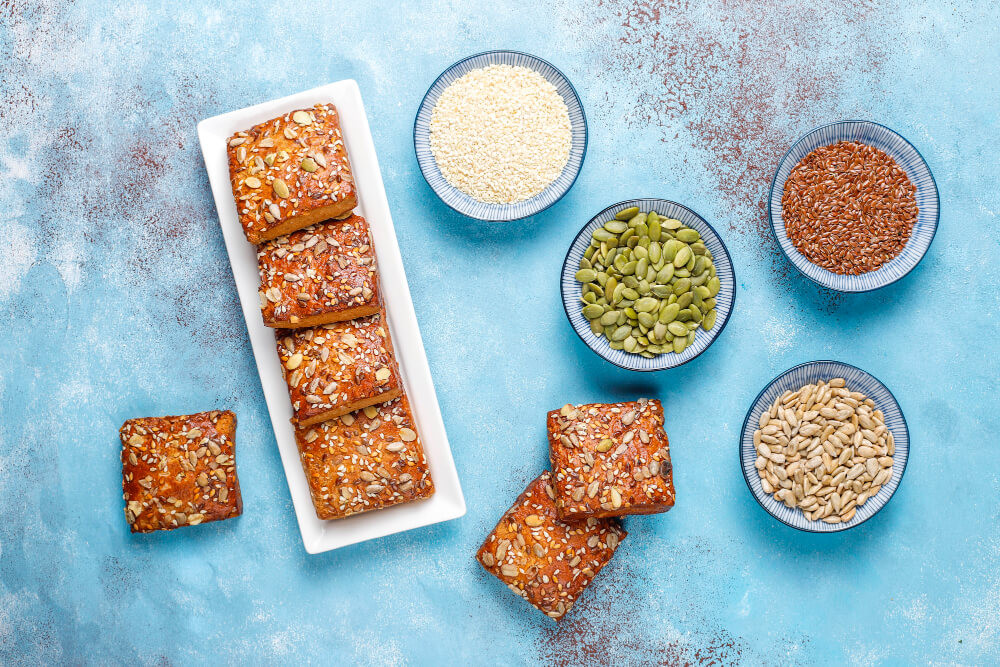Saat ini ada beragam metode diet yang bisa Anda coba sesuai dengan kebutuhan dan kondisi badan Anda. Belakangan ini di media sosial beredar metode diet 30/30/30 yang dipercaya dapat menurunkan berat badan dan mengendalikan kadar gula darah. Seperti apa metode diet 30/30/30? Berikut ini ulasannya.
Apa Itu Diet Metode 30/30/30?
Diet metode 30/30/30 adalah metode pengaturan pola makan yang dilakukan dengan cara makan 30 gram protein dalam 30 menit pertama setelah bangun tidur kemudian dilanjutkan dengan melakukan olahraga intensitas rengan selama 30 menit.
Metode ini pertama kali dicetuskan oleh Timothy Ferriss dalam bukunya berjudul The 4-Hour Body yang kemudian dipopulerkan di media sosial oleh ahli biologi Gary Brecka.
Diet 30/30/30 tidak menetapkan batasan ketat seperti jenis makan yang dikonsumsi dan aturan jendela makan, namun berfokus pada meningkatkan metabolisme tubuh untuk mendukung penurunan berat badan. Selain menurunkan berat badan, metode ini juga baik untuk menjaga kesehatan jantung.
Baca Juga: Diet Rainbow, Diet Berdasarkan Warna Makanan
Cara Melakukan Diet Metode 30/30/30
Diet metode 30/30/30 pada dasarnya adalah membangun kebiasaan sehat untuk mengonsumsi protein dan berolahraga. Dalam diet ini, Anda memulai hari dengan mengonsumsi 30 gram protein dalam 30 menit pertama setelah bangun pagi. Tidak hanya protein, Anda juga bisa memasukkan karbohidrat dan lemak, namun yang terpenting adalah Anda mengonsumsi 30 gram protein saat sarapan.
Selanjutnya Anda dianjurkan olahraga selama 30 menit. Dalam metode 30/30/30, Anda dianjurkan melakukan latihan kardio intensitas rendah yang sedikit meningkatkan detak jantung Anda. Sasaran olahraga ini adalah menjaga detak jantung Anda di bawah 135 kali per menit.
Berikut ini contoh penerapan diet metode 30/30/30:
- Sarapan:
- Smoothie pisang dengan bubuk protein
- Yoghurt rendah gula dengan topping kacang-kacangan dan buah beri
- Roti panggang dengan olesan alpukat, dua butir telur, dan salmon
- Roti panggang dengan selai kacang atau telur dan keju
- Semangkuk salad sayur atau buah dengan tahu, telur, kacang-kacangan, atau keju
- Olahraga:
- Jogging
- Jalan cepat
- Bersepeda
- Lari di treadmill
- Menari
Baca Juga: Diet Rendah Serat, Kenali Pilihan Makanannya dan Siapa Saja yang Memerlukannya
Apakah Diet Metode 30/30/30 Efektif?
Seperti halnya dengan metode diet pada umumnya, diet metode 30/30/30 mungkin cocok untuk sebagian orang. Mengonsumsi protein saat sarapan memiliki sejumlah manfaat seperti:
- Membuat Anda kenyang lebih lama
- Menstabilkan kadar gula darah
- Melawan resistensi insulin
Kemdian jika dilanjurkan dengan latihan kardiovaskular, hal ini dapat membantu penurunan berat badan. Selain membuat Anda kenyang lebih lama, makan protein lebih banyak juga dapat menurunkan berat badan lebih cepat.
CDC juga merekomendasikan olahraga atau aktivitas fisik minimal 30 menit per hari atau 150 menit per minggu untuk menjaga kesehatan kardiovaskular (jantung dan pembuluh darah) dan mencegah risiko penyakit kronis.
Namun apakah diet metode ini efektif atau tidak, hal ini perlu dilihat dari kebiasaan dan gaya hidup setelah sarapan dan berolahraga. Bagi Anda yang memiliki gaya hidup kurang aktif, metode ini mungkin dapat membantu menurunkan berat badan.
Akan tetapi jika pola makan siang dan malam tidak diimbangi dengan pembatasan kalori, Anda mungkin sulit mencapai berat badan yang diinginkan hanya dengan menerapkan metode ini.
Salah satu kekurangan metode diet 30/30/30 yang disoroti para ahli adalah metode ini tidak mengatur pola makan di waktu makan lainnya. Apabila di pagi hari Anda menerapkan metode 30/30/30 namun di siang dan malam hari mengonsumsi makanan dengan kalori tinggi, diet ini akan terasa tidak efektif.
Bagi sebagian orang, diet 30/30/30 mungkin akan berhasil dan bisa dilakukan untuk jangka panjang, namun belum tentu diet ini akan efektif untuk semua orang.
Jika Anda sedang berencana diet, sebaiknya konsultasikan ke ahli diet atau dokter untuk menentukan pola makan dan gaya hidup yang sesuai dengan kondisi Anda. Anda juga bisa memanfaatkan fitur konsultasi pada aplikasi Ai Care yang bisa diunduh melalui App Store dan Play Store.
Mau tahu informasi seputar nutrisi, makanan dan tips diet lainnya? Cek di sini, ya!
- dr Nadia Opmalina
Schmidt, T. (2023). What is the trending 30-30-30 diet method, and does it actually work?. Available from: https://mcpress.mayoclinic.org/nutrition-fitness/what-is-the-30-30-30-diet-and-does-it-work/
Seladi-Schulman, J. (2024). Why Everyone Is Talking About the 30-30-30 Diet for Weight Loss. Available from: https://www.healthline.com/health-news/30-30-30-diet-weight-loss
Southwick, C. (2023). What Is the 30/30/30 Method?. Available from: https://www.health.com/30-30-30-8391851











